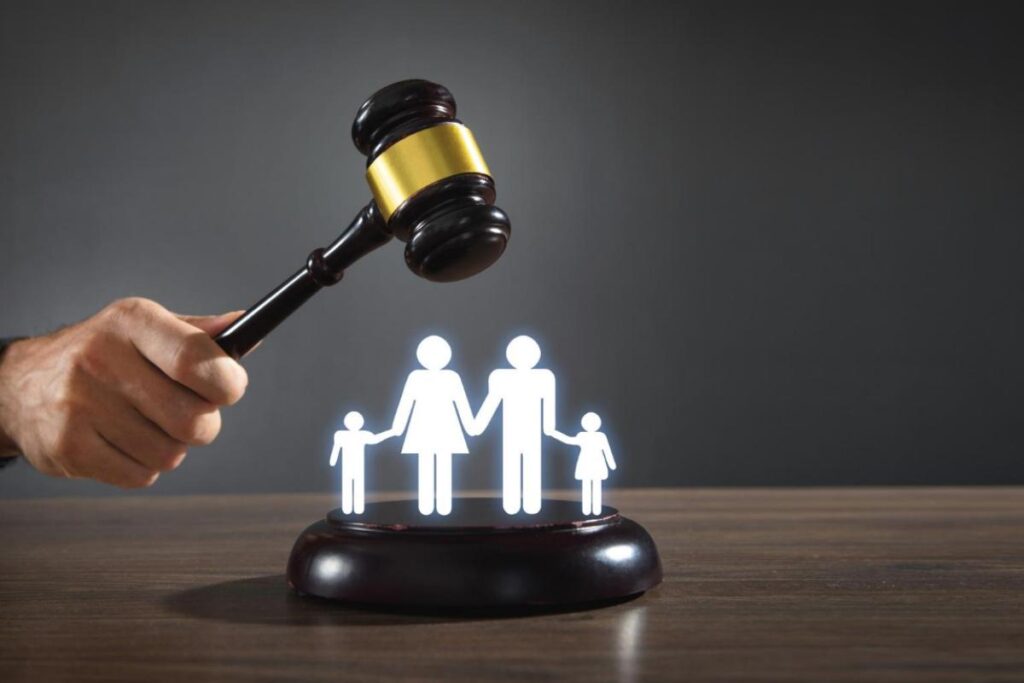
Understanding Domestic Violence Protection Orders
Domestic violence protection orders (DVPOs) are legal instruments designed to safeguard individuals from domestic abuse. They provide a framework for victims to seek protection from their abusers, ensuring their safety and wellbeing. These orders can prohibit the abuser from contacting the victim, entering their residence, or coming near them in public places.
In the UK, DVPOs can be sought through the civil courts, and they are often granted on an urgent basis. This swift action is crucial, as it allows victims to escape dangerous situations quickly. However, navigating the legal system can be daunting, which is where family lawyers Sydney play a pivotal role.
The Importance of Legal Representation
Having a family lawyer is vital for anyone seeking a domestic violence protection order. Legal representation ensures that victims understand their rights and the processes involved in obtaining a DVPO. Family lawyers can provide invaluable guidance, helping clients gather necessary evidence and prepare for court hearings.
Moreover, a skilled lawyer can advocate on behalf of the victim, presenting their case effectively to the court. This advocacy is essential, as the legal language and procedures can be complex and intimidating for those unfamiliar with the system. In addition to navigating the legalities, family lawyers often have access to a network of support services, including counselling and shelters, which can be crucial for victims in distress. These resources not only aid in the immediate aftermath of abuse but also support long-term recovery and empowerment, helping individuals rebuild their lives in a safe environment.
Furthermore, the emotional toll of domestic violence cannot be underestimated. Victims often face feelings of isolation, fear, and uncertainty about the future. A family lawyer can provide not just legal support, but also a compassionate ear, helping clients feel understood and validated in their experiences. This holistic approach to representation is vital, as it addresses both the legal and emotional aspects of seeking a DVPO, ensuring that victims are not only protected but also supported throughout their journey to reclaim their autonomy and peace of mind.
The Process of Obtaining a Domestic Violence Protection Order
Obtaining a DVPO involves several steps, each of which requires careful attention and understanding. Family lawyers are instrumental in guiding clients through this process, ensuring that all legal requirements are met and that the victim’s safety is prioritised.
Initial Consultation
The first step typically involves an initial consultation with a family lawyer. During this meeting, the lawyer will assess the situation, listen to the victim’s experiences, and discuss the options available. This consultation is crucial for establishing trust and understanding the specific circumstances surrounding the case.
During this stage, the lawyer will also explain the different types of protection orders available, including non-molestation orders and occupation orders. Understanding these distinctions is essential for victims to make informed decisions about their safety. Furthermore, the lawyer may also provide insights into the legal terminology and processes that can often seem daunting, ensuring that victims feel empowered and informed as they navigate this challenging journey.
Gathering Evidence
Once the decision to pursue a DVPO is made, the next step involves gathering evidence to support the application. Family lawyers assist victims in collecting relevant documentation, such as photographs of injuries, witness statements, and any previous police reports. This evidence is vital for substantiating the claims of domestic violence.
Additionally, lawyers can help victims understand the importance of keeping a detailed record of incidents, which can be beneficial in court. This meticulous documentation can significantly strengthen the case for a DVPO. Victims are often encouraged to maintain a diary of events, noting dates, times, and descriptions of incidents, which can serve as a powerful narrative in legal proceedings. Moreover, the emotional toll of domestic violence can be overwhelming, and legal professionals may also suggest seeking support from counselling services, which can provide both emotional relief and additional documentation of the victim’s experiences, further bolstering their case.

Filing the Application
After gathering sufficient evidence, the lawyer will assist in filing the application for a DVPO. This stage involves completing the necessary legal forms and submitting them to the court. Family lawyers ensure that all paperwork is accurately filled out and submitted promptly, as delays can jeopardise the victim’s safety.
Attending Court Hearings
Once the application is filed, a court hearing will be scheduled. This hearing is a critical moment in the process, as it determines whether the DVPO will be granted. Family lawyers play a crucial role in representing the victim during these hearings.
During the hearing, the lawyer will present the evidence gathered and argue for the issuance of the protection order. They will also cross-examine any witnesses presented by the abuser, challenging their claims and reinforcing the victim’s position. This representation is vital, as it can significantly influence the court’s decision.
Types of Domestic Violence Protection Orders
There are various types of domestic violence protection orders available in the UK, each serving different purposes. Understanding these types can help victims and their lawyers determine the most appropriate course of action.
Non-Molestation Orders
A non-molestation order is designed to protect victims from harassment or violence. It prohibits the abuser from contacting the victim in any form, including phone calls, texts, or in-person interactions. Breaching a non-molestation order is a criminal offence, which provides an additional layer of protection for the victim.
Family lawyers can assist in obtaining non-molestation orders quickly, often on an emergency basis, to ensure immediate protection for the victim.
Occupation Orders
Occupation orders are another type of DVPO that grants the victim the right to remain in the family home while excluding the abuser. This order is particularly important for individuals who may feel unsafe returning to their residence after an incident of domestic violence.
Family lawyers can help victims navigate the complexities of applying for an occupation order, ensuring that their rights to housing and safety are upheld.
The Role of Family Lawyers Beyond Legal Representation
While legal representation is a primary function of family lawyers in DVPO cases, their role extends beyond the courtroom. They provide emotional support and guidance, helping victims navigate the often overwhelming experience of dealing with domestic violence.
Emotional Support and Resources
Family lawyers often act as a source of emotional support for victims, understanding the trauma and stress associated with domestic violence. They can provide referrals to counselling services, support groups, and other resources that can aid in the healing process.
This holistic approach is essential, as it recognises that legal issues are often intertwined with emotional and psychological challenges. By addressing these aspects, family lawyers can help victims rebuild their lives with a sense of security and empowerment.

Long-term Safety Planning
In addition to immediate legal protection, family lawyers can assist victims in developing long-term safety plans. This planning may involve strategies for leaving an abusive relationship, securing housing, and ensuring financial independence.
By collaborating with victims to create comprehensive safety plans, family lawyers play a crucial role in helping individuals regain control over their lives and reduce the risk of future violence.
Conclusion
The role of family lawyers in domestic violence protection orders is multifaceted and essential. From guiding victims through the legal process to providing emotional support and resources, these legal professionals are vital allies in the fight against domestic violence.
Victims of domestic abuse should not hesitate to seek legal assistance. Family lawyers can empower them to take the necessary steps towards safety and recovery, ensuring that their rights are protected and that they have the support they need to move forward.
In a society where domestic violence remains a significant issue, the importance of family lawyers in securing protection for victims cannot be overstated. Their expertise and dedication can make a profound difference in the lives of those affected by domestic violence, helping them reclaim their lives and find hope for the future.
See also: What to expect during a family law consultation: A step-by-step guide.
